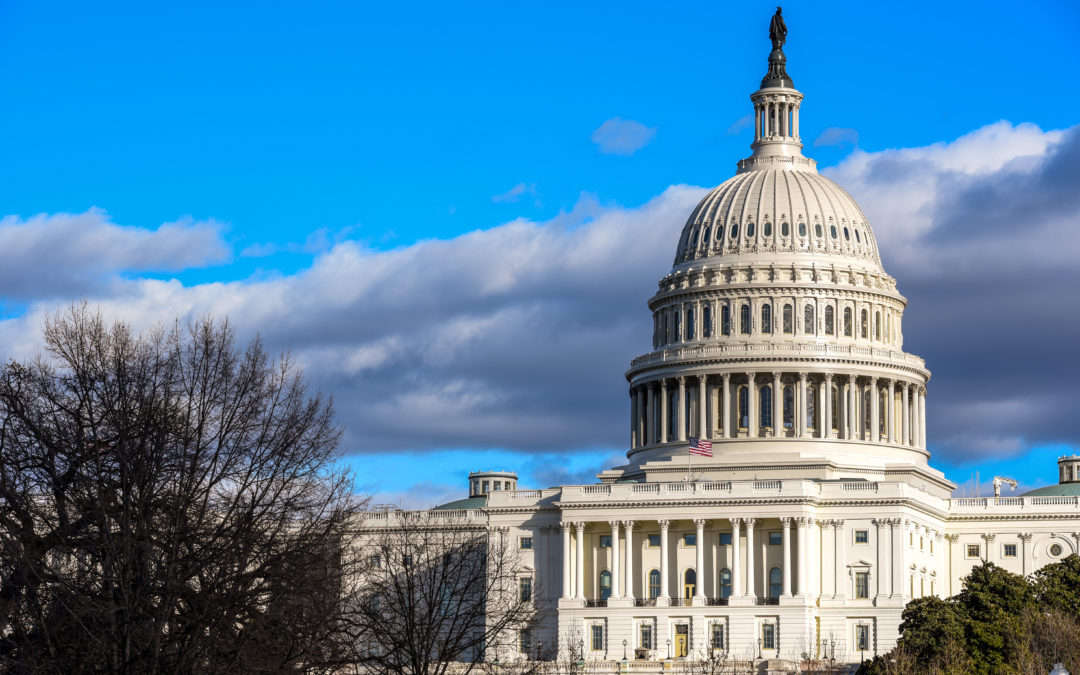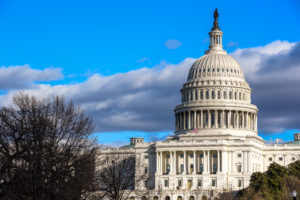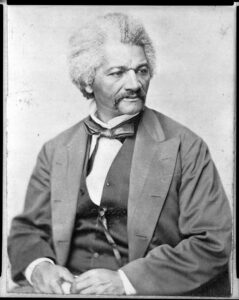
by Edward Ford Jr. | Aug 19, 2024 | Black History, Commentary, Headline News, Social Justice |

“We hold these truths to be self-evident, that all men are created equal, that they are endowed by their Creator with certain unalienable rights, that among these are life, liberty and the pursuit of happiness.”
These words are among the opening lines of the Declaration of Independence. It is a bold declaration, and one that we as a nation should in every era strive towards. However, the reality is that we have yet to attain this ideal. These words written should remind each of us that we are made in the Imago Dei – the image of God. We are entitled to inalienable rights. What is an inalienable right you might wonder? It is a right to freedom; a right to have your voice heard; a right to have clean air, water, food and housing. These rights were given to us by our Creator and therefore, no government should be able to deny them. Again, we have had to strive in many ways to live up to this standard. The horrific legacy of treatment towards indigenous people, race-based chattel-slavery, lynching, black codes, Jim Crow, Voter Suppression, Red-Lining, and Mass Incarceration are indicators to us that we are still on the journey to living up to what was written in our Declaration. Within each generation there is a remnant of people of good faith who must decide to call out the present injustice and reject evil and wrongdoing at every angle.

Sojourner Truth Memorial in Florence, Massachusetts.
Lynne Graves, CC BY-ND
During the Abolition Movement, Frederick Douglas and Sojourner Truth were among abolition leaders who were led by their deep Christian faith to push for the abolition of race-based chattel slavery. They looked to the Declaration of Independence as a document that applied the moral laws of creation to our newly formed nation and how all people ought to be treated. The use of the declaration was much a part of the argument for abolition, and rightfully so. The argument was to highlight blatant hypocrisies that were being ignored for the benefit of the planter class. The same argument was used during America’s 2nd Reconstruction, the Civil Rights Movement of the 1950s-60s. Our country is much familiar with the name of Reverend Dr. Martin Luther King Jr. and his famous “I Have a Dream” speech. How many of us truly know what was said in that speech besides “I have a dream”? The correct title of the speech that King delivered, was “Normalcy, Never Again.” Within this speech King is quoted saying, “When the architects of our republic wrote the magnificent words of the Constitution and the Declaration of Independence, they were signing a promissory note to which every American was to fall heir. This note was a promise that all men – yes, black men as well as white men – would be guaranteed the unalienable rights of life, liberty and the pursuit of happiness.” King was appealing to our nation’s better angels and trying to reveal to us the reality that we had not been true to what we wrote on paper. In his final speech, titled “I’ve been to the Mountaintop”, delivered before a Memphis crowd on April 3rd, 1968 the day before he was assassinated, King said “All we say to America is to be true to what you said on Paper”. King was referring back to our Declaration and the bold promises of liberty and justice for all we continue to tout to this very day.

I raise the example of King, Truth, and Douglas, as they were each Christian leaders who gave themselves to the plight of justice in their respective eras. The lives of these American Christians among many others give us a glimpse into how we as Christians can engage in the movement for justice from a biblical worldview in our society today. We must ask ourselves as Christians, how can we aid in helping our nation truly live up to its highest ideals of liberty and justice for all? How can we progress our nation towards valuing everybody as image bearers in and throughout our systems?
First we have to look back at the scriptures and principles of God’s Word. Jesus shares the story of the Good Samaritan in Luke chapter 10:25-37, for good reason. He is breaking down cultural barriers and helping those of his day to see one another as fellow image bearers. Earlier in the chapter Jesus effectively answers a religious law expert’s question regarding the greatest commandments (v. 27). Jesus essentially had the man answer his own question! The passage is as follows: “He answered, ‘Love the Lord your God with all your heart and with all your soul and with all your strength and with all your mind’; and ‘Love your neighbor as yourself.’ ‘You have answered correctly,’ Jesus replied. “Do this and you will live.” But he wanted to justify himself, so he asked Jesus, “And who is my neighbor?” This is when Jesus shares the famous Good Samaritan story with him and how he was the only one of three people to stop and help the person who had just been beaten and robbed on the side of the road. The exchange between the two continues. In verses 36-37, Jesus asks him, “Which of these three do you think was a neighbor to the man who fell into the hands of robbers?” The expert in the law replied, “The one who had mercy on him.” Jesus told him, “Go and do likewise.”
This passage is timeless. It provides a view into God’s heart towards all of humanity, how Jesus came as the rendering of God’s mercy towards us, and how he requires us to show mercy to others. In Luke 4:18-19, Jesus makes his own opening declaration as he begins his three-and-a-half-year world-changing ministry. He says, “The Spirit of the Lord is on me, because he has anointed me to proclaim good news to the poor. He has sent me to proclaim freedom for the prisoners and recovery of sight for the blind, to set the oppressed free, to proclaim the year of the Lord’s favor.”
We who carry on the Great Commission, who have a duty to spread the Gospel to all, must recognize we have to fulfill this duty in word and deed. The early church in the Book of Acts spread the Gospel and they also initiated humanitarian help to those in need. There are so many issues in our modern world today, that we as the body of Christ have the capability to impact in a positive way. From helping the unhoused, resolving food insecurity in entire communities, to pushing our policy makers to make healthcare more affordable, and taking numerous policy actions that will uplift all people. We are to be a voice for the voiceless. There is no greater place of refuge and strength for the weary, the broken and the hurting than the church today. We must live the Gospel through our actions and that includes standing up for the poor, the marginalized, and the oppressed of society.
 Reverend Edward Ford Jr. is a Former Elected Official in Connecticut, a Community Advocate, Organizer, Healthcare Administrator, and Public Theologian. He is currently studying for a Master’s Degree in Divinity at Yale University in New Haven, CT.
Reverend Edward Ford Jr. is a Former Elected Official in Connecticut, a Community Advocate, Organizer, Healthcare Administrator, and Public Theologian. He is currently studying for a Master’s Degree in Divinity at Yale University in New Haven, CT.
Sources:
National Archives. The Declaration of Independence. https://www.archives.gov/founding-docs/declaration-transcript.
Carla S. King and William M. King. “Be True to What you Said on Paper.” History Colorado. Jan. 14th, 2021. https://www.historycolorado.org/story/discourse/2021/01/14/be-true-what-you-said-paper
by Amanda Edwards | Sep 11, 2012 | Entertainment, Feature, Headline News |

ATTENTION GRABBER: On Twitter, rapper Nicki Minaj was ecstatic to have drawn the attention of President Obama with her supposed endorsement of GOP presidential nominee Mitt Romney. (Photo: Christopher Macsurak/Wikipedia)
Well, good news: Nicki Minaj supports President Obama after all. Whew! That’s a relief.
Last week, you may recall, the twitterverse was all abuzz after the colorful rapper set off speculation that she was supporting Republican presidential nominee Mitt Romney. Her featured track on Lil Wayne’s latest mixtape caught the rapper sharing some puzzling lyrics that indicated she was casting her lots with the GOP. On Lil Wayne and Kanye West’s song “Mercy,” Minaj raps: “I’m a Republican voting for Mitt Romney/You lazy b***es is f***ing up the economy.”
Almost immediately, the world broke into an uproar attempting to decipher the eccentric rapper’s true intentions behind the cryptic verses. Rolling Stone magazine chimed in on the discussion when it raised the question of whether or not her words were a deliberate endorsement or just a provocative lyric.
But, this week, after President Obama was asked about the song and Minaj’s apparent endorsement of Romney, he told radio station WPYO-FM in Orlando, Florida, that he wasn’t so sure it was a Romney plug. “She likes to play different characters,” he said.
Minaj immediately jumped on the moment. In a tweet, she thanked Obama for understanding: “my creative humor and sarcasm,” then noted: “the smart ones always do …”

In the past the hip-hop star has been known to produce songs filled with controversial lyrics that many felt were for publicity and self-promotion. Rapper Talib Kweli agrees. In a tweet posted last week, he said, “I doubt Nicki seriously supports Romney. Her lyrics ain’t political. She just wants y’all to talk about her & she winning cuz it’s working!”
I particularly enjoyed another tweet from Kweli that helped tease out the irony in the apparent existential crises so many were experiencing after the Minaj mystery hit:

Taking Minaj seriously, Huffington Post contributor Kia Makarechi observed that, “Minaj is hardly the first hip-hop figure to take a stance on the election.” In fact, Makarechi added that a week earlier Jay-Z had presented a video to concertgoers at his Made in America Festival that highlighted President Obama encouraging everyone to vote in the upcoming election.
One pop star that is definitely not a Romney supporter is Black Eyed Peas leader will.i.am. A couple weeks ago at the Republican National Convention, Gov. John Kasich quoted the band in his speech. Kasich said:
You know, I don’t know about you … but I’ve got a feeling. I’ve got a feeling –- and it’s not just because I like the Black Eyed Peas –- I’ve got a feeling we’re about to elect a new president of the United States of America!
Unhappy with the musical reference and his band’s indirect connection with the RNC, will.i.am tweeted, “Hey Gov Kasich #Igotafeeling that Ohio needed the auto bail out…#unitedamericanotdivided let’s educate our youth #reachforthestars.”
The following day, will.i.am continued to fight back in an emotionally charged television interview with Marlow Stern in North Carolina, to discuss his support for the President at the Democratic National Convention.
In different ways, both will.i.am and Nicki Minaj proved their influence in the culture, not to mention the way that pop music, hip-hop, and the opinions of its artists have become an important part of today’s politics.
by Christine A. Scheller | Sep 7, 2012 | Feature, Headline News |

SHREWDLY CELEBRATING: President Barack Obama shrewdly let his wife Michelle shine at the Democratic National Convention. (Photo: Mary F. Calvert/Newscom)
Democrats nominated President Barack Obama for a second term at their convention in Charlotte, North Carolina, this week, but the consensus among pundits was that his wife Michelle Obama and former President Bill Clinton outshone him in their speeches. Was his by design a more modest speech than those he delivered in 2008 to reflect the chastening of the economic crisis that has defined his tenure? It sure seemed so, as he compared himself to Depression-era president Franklin D. Roosevelt and quoted Abraham Lincoln, who said, “I have been driven to my knees many times by the overwhelming conviction that I had no place else to go”?
Speaking of nowhere to go but God, there was a tussle Wednesday afternoon over the fact that the word God initially didn’t appear in the Democratic platform this year. A line about Jerusalem being the perpetual capital of Israel disappeared as well. Just before Bishop Vashti Murphy McKenzie prayed the invocation, Los Angeles Mayor Antonio Villaraigosa had to ask three times for a floor vote to amend the platform to reinsert these references. Then, Villaraigosa clearly overrode a divided final vote to affirm the changes, which gave the Democrats their own Clint Eastwood moment.
Plenty of speakers talked about God, however, including United Methodist pastor and U.S. Rep. Emanuel Cleaver (D-Missiouri), who went off-script Wednesday and began preaching a passionate mini-sermon. “Hope is the motivation that empowers the unemployed. … It is our hope and faith that moves us to action,” Cleaver shouted. “As long as the God of Abraham, Isaac, and Jacob sits on the throne of grace, Mr. President, hope on!”
Speaking of shouting, the convention opened with a lot of that Tuesday, most notably from Newark, New Jersey, Mayor Cory Booker. “It is our most fundamental national aspiration – that no matter who you are, no matter what your color, creed, how you choose to pray or whom you choose to love, that if you are an American — first generation or fifth– one who is willing to work hard, play by the rules, and apply your God-given talents, that you should be able to find a job that pays the bills,” Booker yelled as he introduced the party platform.
As to the platform itself, support for same-sex marriage was included for the first time and language about keeping abortion “safe, legal, and rare” is gone. The drumbeat championing “choice” over Republican oppression of women’s bodies resounded from the first speaker to the last. Juliet Lapidos of The New York Times noticed and so did Michael Sean Winters, a blogger for The National Catholic Reporter. In a column at CNN, Winters said the Obama campaign has given up on courting moderate, white, working class voters who are primarily concerned about the economy. Instead he is “re-litigating the culture wars he promised to salve.” Even Comedian Jon Stewart’s Daily Show produced a bit about the party of inclusion not being so inclusive when it comes to gun-toting, God-fearing, anti-science Evangelicals.
New York City pastor and councilman Fernando Cabrera (D-Bronx) told CBN News that he was at the convention to debate the platform change regarding same-sex marriage. “I see myself as a reformer, and I’m hoping that we can put enough pressure (on the party),” Cabrera said. Other Christians were there to offer non-partisan prayers. Bishop Vashti Murphy McKenzie, Rev. Gabriel Salguero, and Blood:Water Mission founder Jena Lee Nardella were among those offering a sweet aroma of prayer amidst the partisan preaching. And Sister Simone Campbell of the Nuns on the Bus delivered a short but impassioned speech about the potential dangers of Republican congressman and vice presidential candidate Paul Ryan’s “immoral budget” and why “our faith strongly affirms that we are all responsible for one another.”
As to those stunning speeches delivered by First Lady Michelle Obama and former President Bill Clinton, Obama’s was notable for its passion and clarity and for the heart-warming story of the Obamas’ humble beginnings, but also for the fact that Mrs. Obama’s autobiography excluded any mention of her ever having held a job. Instead she described herself as “Mom-in-Chief.” Clinton’s was widely regarded as being so far above others in its rhetorical skill and specificity that even right-leaning pundits conceded he gave Obama the boost he needed, which brings me back to my original point, and that is that the president may not be Bill Clinton, but he is a shrewd politician nonetheless. Just ask Hillary.
What do you think?
What were the high points and low points of the Democrats’ big party?
by Wil LaVeist | Sep 5, 2012 | Feature, Headline News |

NO LOOKING BACK: Democratic delegates and supporters waved “Forward” placards at the Time Warner Cable Arena in Charlotte, North Carolina, on Sept. 4, the first day of the 2012 Democratic National Convention. (Photo: Robyn Beck/Newscom)
The contrast in diversity was striking on the screen.
The sea of red, yellow, white, black, and brown faces at the Democratic convention in Charlotte last night compared to the sea of white with black and brown specks at the Republican event last week in Tampa. It’s like watching color TV vs. black and white.
But is it really?
Nowadays we talk about red (Republican) and blue (Democratic) as code for conservative and liberal, but as the Democrats take their turn this week and re-nominate the first African American POTUS, I wonder how many black Democrats know their party’s history is much redder than the GOP when it comes to black people and other minorities. In fact, the DNC’s founding fathers would be red with rage that Barack Obama is the party’s leader.
You certainly wouldn’t know this by viewing the DNC’s website on your computer. The opening paragraph of the African American section reads:
“For decades, Democrats have stood with the African American community in the struggle for equality and the enduring struggle to perfect our nation itself.”
Really?
The section about the party’s history reeks with campaign spin:
“For more than 200 years, our party has led the fight for civil rights, health care, Social Security, workers’ rights, and women’s rights. We are the party of Barack Obama, John F. Kennedy, FDR, and the countless everyday Americans who work each day to build a more perfect union.”
This is followed by a timeline with the entry being 1920.
C’mon now. Your official founding date is 1792, making the Democrats the nation’s oldest political party, yet your timeline begins in 1920? Is it because you are also the party of President Andrew Jackson that promoted the bloody takeover of Indian lands and the expansion of slavery? Is it because you are the party of President Andrew Johnson, the Confederate who during Reconstruction championed laws leading to Jim Crow that re-shackled black freedom for decades after the Civil War?
I was reared in a Democratic household in Brooklyn, New York, to parents who were union loyalists. My initial DNC history reached only as far as FDR and the New Deal. But as I came of voting age I sought the backstory for myself. In a word, it is racist.
The party of Obama had for centuries championed a laundry list of oppressive policies that have led to the tragic disparities and the areas of health, wealth, education, housing, and incarceration rates that continue to plague the African American community today. However, that revelation then didn’t stop me from voting my interest such as, helping David Dinkins to become New York’s first black mayor in 1990.
The truth before 1920 and after is easily accessible via several legit Web sites. Of course Republicans pointed this out themselves in 2008, no doubt as a way of throwing stones at then-Sen. Obama’s magical run for the White House.
What’s curious is why the DNC doesn’t openly embrace its full history — that the party that once championed slavery has produced the nation’s first African American president. Wouldn’t that show how far the party has led nation, though there’s still a ways to go? Wouldn’t that illustrate “change we can believe in,” and progress “forward?” Wouldn’t that show respect for blacks, a constituency that is supposed to be highly valued? DNC leadership obviously decided on the history revision. Where are the black Democratic leaders on this? Where are the whites who are supposed to be progressive?
For me, it shows that both parties share a common problematic history on the issue of race. One doesn’t want to hear about it, while the other doesn’t want to talk about it. This hasn’t changed much over the years. People have just switched sides and traded names.
Real change would be seeing a sea of colorful faces at both conventions, and two parties focused on meaningful policies rather than spin. I don’t expect it to happen in my lifetime, though.
But then again, I said the same about a black man becoming President of the United States.
by Christine A. Scheller | Sep 4, 2012 | Feature, Headline News |
 Following a whirlwind of Republican speeches and surprises in Tampa, the Democrats launch their national convention tonight in Charlotte, North Carolina, with a lineup that includes a musical performance by Ledisi, a tribute to President Jimmy Carter, a speech from First Lady Michelle Obama (along with appearances by her brother Craig Robinson and sister-in-law Maya Soetoro-ng), San Antonio Mayor Julian Castro delivering the first keynote from a Hispanic, an appearance by African Methodist Episcopal Bishop Vashti McKenzie, and a benediction by Jena Lee Nardella, founder and executive director of Blood: Water Mission.
Following a whirlwind of Republican speeches and surprises in Tampa, the Democrats launch their national convention tonight in Charlotte, North Carolina, with a lineup that includes a musical performance by Ledisi, a tribute to President Jimmy Carter, a speech from First Lady Michelle Obama (along with appearances by her brother Craig Robinson and sister-in-law Maya Soetoro-ng), San Antonio Mayor Julian Castro delivering the first keynote from a Hispanic, an appearance by African Methodist Episcopal Bishop Vashti McKenzie, and a benediction by Jena Lee Nardella, founder and executive director of Blood: Water Mission.
In a roundup on people praying at the convention, CNN’s religion editor Dan Gilgoff says Nardella is important because she “represents the young evangelical demographic that the Obama campaign is targeting in this election, knowing that older evangelicals are largely locked up for Republican presidential nominee Mitt Romney.” Gilgoff says McKenzie, who prays the invocation on Wednesday, is significant because she is an Obama campaign co-chair and “the first woman elected bishop in the AME Church, the country’s oldest black religious denomination.”
Before the convention even got underway, “thousands of Christians converged in Charlotte on Sunday to repent and pray for revival in the face of what they see as a ‘national crisis,'” The Christian Post reported.
But did they pray for more prose and less poetry?
In an Associated Press op-ed, veteran reporter Michael Oreskes says Romney has the easier task this election season. “He gets to campaign in poetry. But Obama must now explain the governing prose of the last four years,” said Oreskes. Need proof? “The last president to win re-election with unemployment over 8 percent was Franklin D. Roosevelt,” he said.
As to tonight’s historic keynoter Julian Castro, in 2010, he reportedly told The New York Times that affirmative action helped pave the way for the success he and his twin brother ( a Texas state representative) have enjoyed. “Joaquin and I got into Stanford because of affirmative action. I scored 1,210 on my SATs, which was lower than the median matriculating student … But I did fine in college and in law school. So did Joaquin.”
Speaking of inclusion, Democratic National Committee Chairwoman Debbie Wasserman Schultz told CBN News that the convention “is going to be the most inclusive, participatory, open-to-the-public affair of any presidential nominating convention in history.”
But will it be friendly to conservtive Democrats?
CBN asked Shultz if the DNC’s new party platform affirming same-sex marriage might alienate them. “Applying the law equally — whether you’re talking about marriage or anything else — is not a political issue. It’s a values issue,” said Schultz. She went on to say that religious institutions’ treatment of marriage is “a separate issue.”
What do you think?
What do you want to hear from the Democrats this week?
Correction: The Jimmy Carter video was not a tribute, but videotaped remarks by the former president. PBS commentators reported that Carter was not invited to speak in person at the convention.




 Reverend Edward Ford Jr. is a Former Elected Official in Connecticut, a Community Advocate, Organizer, Healthcare Administrator, and Public Theologian. He is currently studying for a Master’s Degree in Divinity at Yale University in New Haven, CT.
Reverend Edward Ford Jr. is a Former Elected Official in Connecticut, a Community Advocate, Organizer, Healthcare Administrator, and Public Theologian. He is currently studying for a Master’s Degree in Divinity at Yale University in New Haven, CT.





 Following
Following